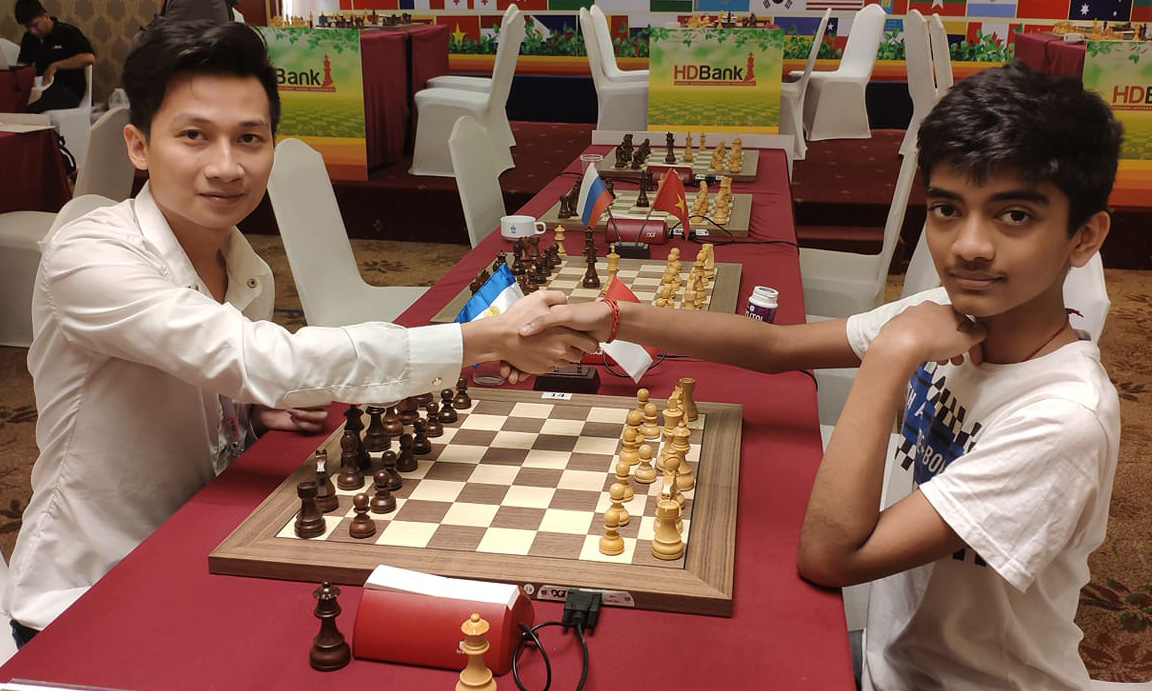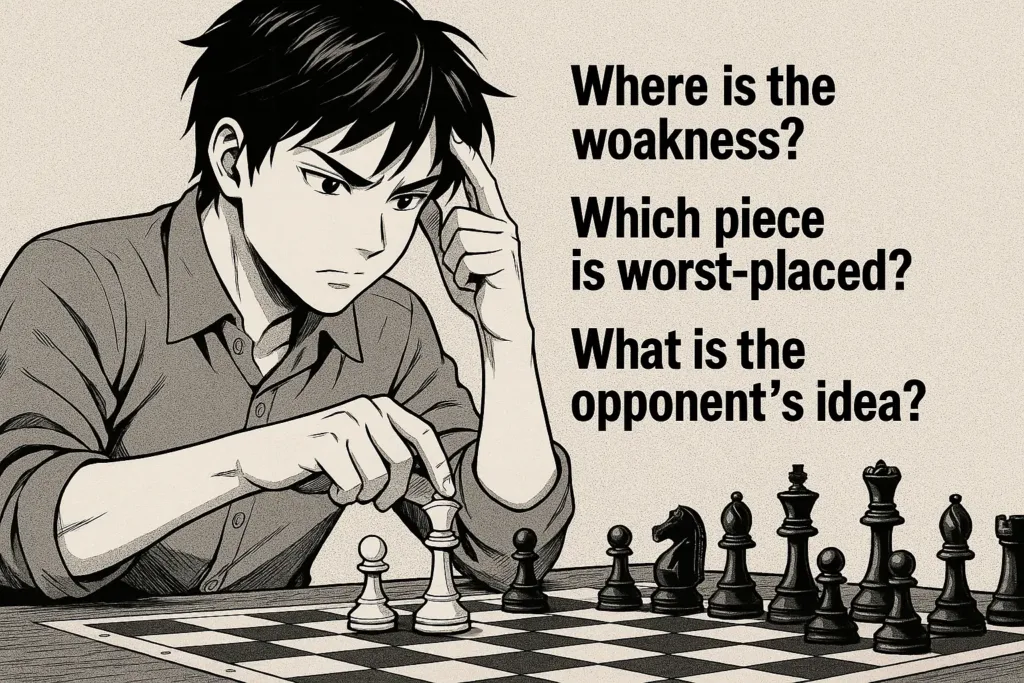Good chess players know a lot.
Great chess players know what to look for.
That’s the real difference.
If you want to sharpen your positional judgement, stop memorizing more rules. Stop cramming new principles. Instead, learn a simple process — one that sharpens your focus every time you sit at the board.
Ask yourself three questions.
Ask them again and again until they become instinct.
1. Where is the weakness?
2. Which piece is worst-placed?
3. What is my opponent’s idea?
That’s it. Three questions.
Simple enough to remember. Powerful enough to reshape the way you think.
Why these three questions work
They give your mind direction.
Weaknesses show you targets.
Badly placed pieces reveal opportunities.
Your opponent’s idea tells you where the real fight is happening.
Whether you’re rated 1200 or 2600, the pieces move the same way. The difference between you and a grandmaster isn’t knowledge — it’s attention. They’re simply looking at the right things, at the right time.
This approach is practical. It’s not theory for theory’s sake. Real improvement happens when knowledge turns into action — when you can apply what you already know under pressure. By repeating these three questions, you train your subconscious to notice patterns automatically. Over time, intuition stops being guesswork and starts being reliable.
How to train it
Slow down. Don’t rush to find a move.
Take a breath, and go through the checklist.
- Ask the questions. Out loud if you can.
- Write your answers. Just a few words each.
- Then calculate. Let those answers guide what you explore.
- Review your mistakes. When you miss an idea or pick the wrong plan, ask yourself why. Did you overlook a weakness? Misjudge a piece? Ignore your opponent’s plan?
Those mistakes are pure gold. They show you exactly where your judgement slips. Track them, study them, and you’ll start seeing patterns in your blind spots — and then fix them.
A method that works at any level
Take any training position. Spend a few minutes applying the three questions.
You’ll be amazed how many times the same small errors repeat. Even strong players benefit from this. It won’t make you brilliant overnight — but it will make your decisions consistently sharper.
Remember this
Do the questions before move-hunting.
Be honest in your answers.
Keep a small notebook of recurring mistakes.
Review it weekly.
Because positional skill isn’t about memorizing dozens of rules. It’s about building a habit — a habit of looking at the board with clarity and purpose.
So start now.
Next time you sit down to play, don’t rush.
Ask yourself:
Where is the weakness?
Which piece is worst-placed?
What is my opponent’s idea?
That’s how you stop guessing.
That’s how you start thinking like a grandmaster.

I’m Xuan Binh, the founder of Attacking Chess, and the Deputy Head of Communications at the Vietnam Chess Federation (VCF). My chess.com and lichess rating is above 2300. Send me a challenge or message via Lichess. Follow me on Twitter (X) or Facebook.

